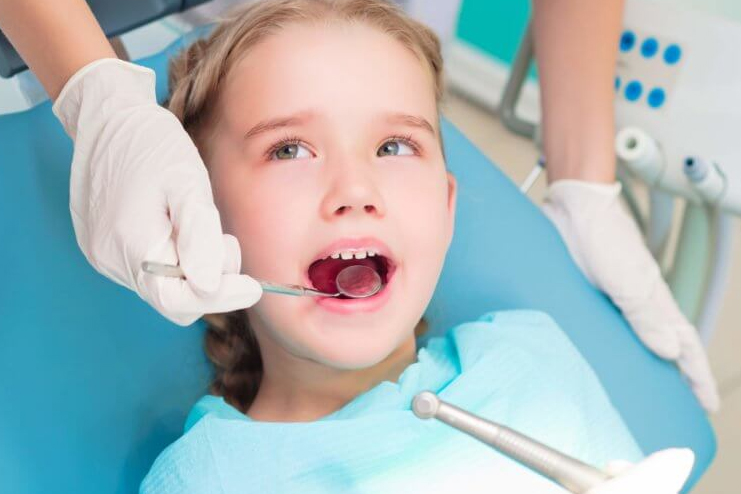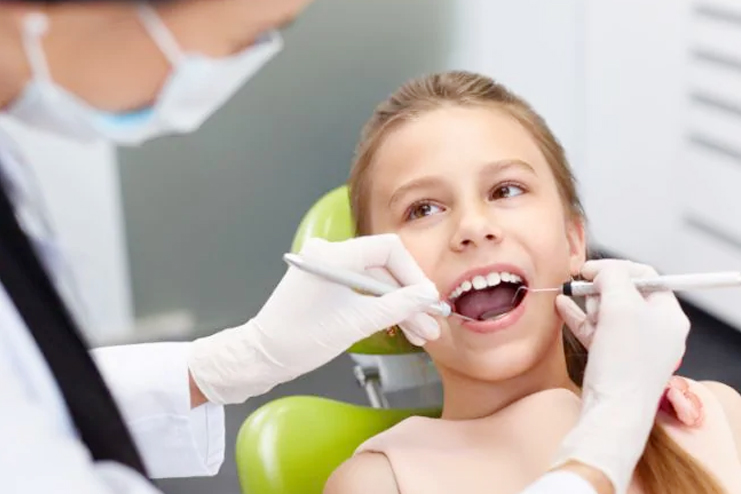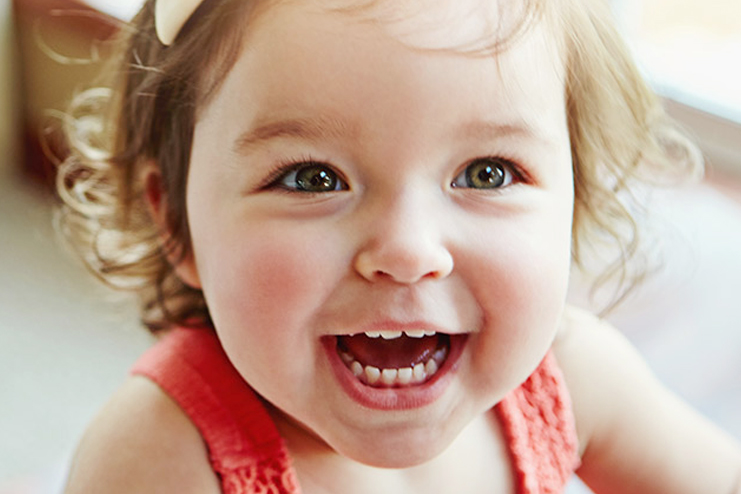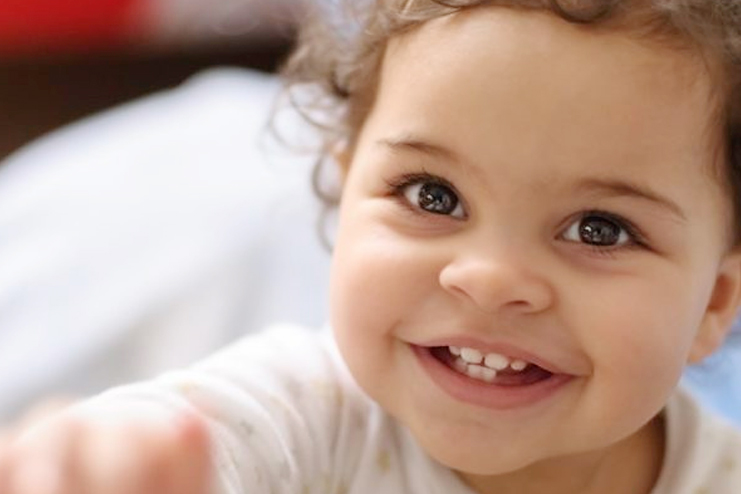Are teeth grinding in toddler normal? What is the reason behind teeth grinding in babies? Why does the toddler grind their teeth? What to do about it? Well, I know all these questions may be popping up in your mind. Don’t stress out. It is all due to bruxism.
Teeth grinding is a term that is used for the condition where the babies grind their teeth or clench their jaw very tightly. It is the phenomenon that normally occurs in the middle of the night in case of babies and toddler.
By the end of the article, you will get to have a fair share of information about what is teeth grinding, the causes behind teeth grinding in babies, and the various ways to prevent teeth grinding in babies.
What Is Teeth Grinding?
Teeth grinding is otherwise known as bruxism. It is one of the most common problems in case of babies and toddlers. It happens when the babies or toddler press their upper or lower jaw down on each others. This leads to grinding the teeth together.
It is also defined as the act of grinding and/or clenching the teeth. As per the Kids Health, it occurs at about 20 to 30 percent in kids. (R)
It is too common in children. Normally it goes away when the kid is around six years and for some, it may continue till adulthood also. As per the University of Michigan Health System, (R) children may begin to grind their teeth at 6 months or in a later phase of time when their teeth start to come in at the age 5 . It is a time when their permanent teeth may start to appear.
What Causes Teeth Grinding In Babies?
It is difficult to figure out the the causes of bruxism in babies as it differs from one baby to another. But, here are a few reasons behind teeth grinding in babies.
1. Teeth Pain:
This is one of the probable causes behind the teeth grinding. The infant can clench their jaw which as a response leads to pain in case of toddler and babies. It is believed that grinding of teeth helps to subdue the pain. (R)
2. Ear Infection:
This is another cause behind the baby grinding teeth. Due to the ear infection, the pain can radiate all the way to the lower jaw. This, as a result, leads to making the baby grind his teeth.
Note: this is not a direct cause of bruxism in babies and toddler.
3. Sleep Apnea:
Sleep apnea is one of the causes behind the toddler grinding teeth. As I said above, teeth grinding mostly occurs at night . The babies suffering from obstructive sleep apnea may grind their teeth as an incidental effect.
Sleep apnea causes the jaw muscles to open the mouth involuntarily and leads to grating and grinding of the teeth due to the constant tension on the jaw muscles.
4. Infection of Tonsils:
Infection of the tonsils is another probable cause behind teeth grinding in babies. As per the studies, it is found out that especially adenoid tonsils cause teeth grinding in kids.
This is because it leads to hypertrophy or abnormal enlargement of the tissue. It is also due to adenotonsillar hypertrophy for the reason or causes of bruxism in babies. This could have at least 75% of their airways obstructed due to the swollen tissue.
5. Attention Deficit Hyperactivity Disorder (ADHD):
There are many types of research suggesting that there is a correlation between bruxism and the occurrence of ADHD in a toddler. So, this could be a cause behind a toddler grinding teeth.
The children who are receiving medication for ADHD have a higher occurrence of bruxism and can show teeth grinding at any time of the day. The research suggests bruxism in ADHD toddlers is due to external stress such as family problems, mental disorders in parents or fragile psychological stress factors.
As per one of the studies, there is a higher incidence of maternal depression among ADHD toddlers with bruxism than those who had ADHD without bruxism. (R)
6. Stress:
The above point clearly said that this is also one of the reasons behind teeth grinding. In the case of toddlers, stress can be due to simple conditions such as joining a new playschool or living with a disliked relative.
The toddlers do also have a tendency to throw tantrums and may take it in a form of anger and irritation, leading to subconscious teeth grinding.
7. Neurological Disorder:
There are many studies that have proven that neurological disorders increase the prospects of a toddler developing bruxism. For example, acute bruxism is observed in toddlers with cerebral palsy in combination with a host of other oral problems.
The poor motor control and neural degeneration are often the reasons for teeth grinding. Therefore, the severity of bruxism is likely to be proportional to the seriousness of the neurological disorder.
8. Sleep Disorder:
There is also a correlation between sleep disorder and teeth grinding. Studies have proven that who talk while sleeping have some kind of teeth grinding.
The teeth grinding (bruxism) occurs in REM sleep.
Symptoms Of Teeth Bruxism:

The symptoms of teeth bruxism are as follows-
- The children face difficulty while eating food
- The children may have clipped teeth even if they haven’t had any injury.
- They may have problems such as jaw ache, earache, and overall pain in the face.
- The child do teeth grinding sound while sleeping
- The child has complaints about lingering but has a dull pain in the forehead.
- Jaw pain or soreness
- The child has trouble sleeping
- Damage to the soft tissues of the mouth
- Abnormal tooth loss
- Snoring or mouth breathing
- Bruises on tongue or inner cheek.
How To Stop Baby Grinding Teeth?
Here are a few ways to stop teeth grinding in babies. If it is not that serious, then it doesn’t need any treatment in babies and toddler. There is no specific treatment for teeth grinding but in general, you can go for these-
1. Stress Management:
This is one of the first cause of bruxism. It is you who has to figure out the level of stress in kids and find a way for mitigating it. You have to manage the level of stress in kids. But it is difficult when the children are suffering from any kind of neurological disorder. For this , they need your support and if you can, then refer to a counsellor.
2. Physiotherapy:
This is yet another way of treatment for baby teeth grinding. The toddlers have to control their jaw muscles by using certain ways of behavioral physiotherapy. This, as a result, helps in dealing with the pain in the jaw muscles.
This is an amazing way as it works great for the toddler who grind their teeth even during the waking hours.
3. Dental Mouth Guards:
This is another amazing way to stop teeth grinding in babies. A toddler can sleep with dental mouth guards . But this is used if the damage to the teeth is extreme. The mouth guards look like a brace and that forms a barrier between the lower and upper jaw. This prevents the jaw from constantly hurting that lead to bruxism.
4. Dental Correction:
This is prescribed when the condition is caused because of lack of teeth alignment. The doctor will prescribe as per the requirement. This can also happen if the toddler has milk teeth, causing misalignment. This, as a result, cause the abnormal contact between the teeth of the upper and lower jaw.
5. Muscle Relaxants:
The muscle relaxants are prescribed by the doctor as oral medicines, which the toddler can have before bedtime or whenever he is prone to grinding his teeth. This is also a superb way to treat baby teeth grinding. Muscle relaxant drugs are used as a last resort when the patient’s response to treatment is extremely slow or when the condition is severe.
What are the Side Effects of Teeth Grinding?

There are certain side effects of teeth grinding which can lead to short term effect as well as long term effects. The side effects of teeth grinding include-
Short Term Effect:
The short term teeth grinding effects are the signals that help the parents to figure out that the child is suffering from bruxism. In this, the child may have loud sound coming from their mouth while breathing during sleep.
The child may have a complaint of mild headache in the morning after getting up from their sleep. They may have pain in or around the ear, due to the pressure of clenching the jaw and grinding at night.
As per mayo clinic (R), the constant wear and tear on the teeth’s enamel from grinding as that can lead to painful chewing or make the teeth more sensitive to hot and cold.
Long Term Effects:
If the teeth grinding continues, then it can have major long term effects.
1. Temporomandibular Joint Disorder:
The temporomandibular joint is a disorder that connects the mandible or jawbone to the skull. It acts as a hinge for the jaw to open and close. Due to Bruxism or teeth grinding, it can cause excessive pressure on the joint.
This makes chewing quite painful and leads to sore throat. It can also cause a clicking sound every time the baby chews. The acute pain and discomfort while moving the jaw is referred to as temporomandibular joint disorder.
2. Facial Myalgia:
It is one of the major long term effects it has with teeth grinding in babies. It is referred as a sensation of facial pain during normal activities in kids. This does involve activities such as speaking or smiling.
Teeth-grinding, in general, creates immense pressure on facial nerves. It may lead to malfunction by transmitting consecutive pain impulses to the brain in some of the rare case.
3. Headache:
As I mentioned above, headache is one of the side effects of teeth grinding. The babies or toddler who are suffering from bruxism are thrice more likely to suffer from headaches as the studies suggest. The child could suffer at certain stages and beyond, it leads to a chronic headache.
4. Abnormal Tooth Breakage:
This is another serious long term effect that affects the toddler and babies with the problem associated with teeth grinding. If bruxism becomes a constant problem and prolongs for a longer period of time, then it may damage the permanent teeth. This, as a result, cannot be replaced.
How To Prevent Teeth Grinding In Babies:

There are certain steps that you can take care of to prevent teeth grinding in babies, such as-
1. Have a Relaxing Routine For The Baby or Toddler:
This really works great with respect to preventing the teeth grinding in babies. The alleviating stress works amazing to deal with bruxism. This does need a relaxing routine for the baby or toddler. They need to relax especially before bedtime. Do make sure you interact with your kids regularly.
2. Let Your Baby Have Adequate Sleep:
Sleep is all and all. Inadequate sleep can lead to a lot of problems. It can lead to fatigue which adversely affects the health of the baby. It can also affect the growth and development of the baby.
Sleep leads to relaxing the muscles which further helps prevent the teeth grinding in babies.
3. Staying Alert About a Medical Condition:
This is the best preventive measure for the teeth grinding in babies and toddlers. If you believe he is showing signs of a problem, or even bruxism, then bring it to the attention of a pediatrician.
Teeth grinding is a term that is used for the condition where the babies grind their teeth or clench the jaw very tightly. It is the phenomenon that normally occurs in the middle of the night in case of babies and toddler. I hope this article has given you good amount of information about the teeth grinding in babies and the ways to deal with it.








































